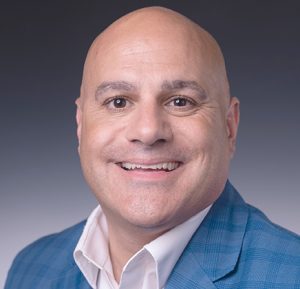Dear Rusty: My wife (born May 1962) and I (born April 1963) are retired and will soon be looking to start collecting our Social Security (SS) benefits as we each hit age 62. As this is new to us, I’m wondering what things we may need to be aware of or consider as we get closer to her 62nd birthday in May. Any advice or information will be appreciated.
Signed: Planning Ahead
Dear Planning: If you and your wife are both retired from working and have decided to start your (reduced) Social Security as soon as you are eligible at age 62, then there is nothing you need to do in advance of applying. The Social Security retirement benefit amount for each of you will be determined by your individual lifetime earnings record and your age when you claim. If either of you will be eligible for a spousal boost from the other, that will be automatically applied when both of you are collecting.
(Sponsored)

When Can an Employer Request an Applicant’s or Employee’s Salary History?
In a tight labor market, many employers struggle to provide the most competitive employment offers, including competitive salaries and wages. Are employers permitted to request an applicant’s current salary in

Maximizing Tax Benefits for Energy-Efficient Buildings
The Inflation Reduction Act (IRA) of 2022 significantly enhanced the Section 179D deduction, making it even more valuable for businesses investing in energy-efficient commercial building property (EECBP) and energy-efficient commercial
If your wife plans to claim her Social Security as soon as she is eligible, she should apply for her benefits about three months in advance and choose the option on the application that states, “I want benefits beginning with the earliest possible month and will accept an age-related reduction.” For information, an applicant must be 62 for an entire month to get benefits, so your wife’s first month of eligibility will be June 2024. The Social Security Administration (SSA) deals only in whole months and pays benefits in the month following the month earned; so if your wife’s birthday is between the 11th and 20th of the month her first Social Security payment will be received in her bank account on the third Wednesday of July. All subsequent payments will be on that same schedule. Then, when it’s time for you to claim, you should follow the same process as your wife and, if either of you is entitled to a higher amount as a spouse, it will be automatically applied when your benefits later start.
Applying for benefits is a relatively simple process if done online at www.ssa.gov/apply. Note that to apply online your wife will need to first create her personal “my Social Security” account, which is easy to do at www.ssa.gov/myaccount. To prepare for applying later, you can also create your personal online account now (it’s required to apply online), at which you will see what your estimated benefit will be at different ages. Of course, your wife first (and later you) can also call the SSA at (800) 772-1213 to request an appointment to apply for SS retirement benefits in person. Applications that are not done online are usually taken over the phone versus requiring a visit to your local Social Security office, but applying online is, by far, the most efficient method (you can link to the application process from your online account).
One important thing to be aware of: By claiming at age 62, the monthly payment for each of you will be 70 percent of what it would be at your full retirement age (FRA) and that is a permanent reduction. If you expect at least average longevity — about 84 for you and 87 for your wife — and if it is financially feasible, then waiting longer to claim would yield a higher monthly payment, as well as the most in cumulative lifetime benefits. For those with an FRA of 67, SS retirement benefits claimed at FRA are 30 percent higher than at age 62 and, if claimed at age 70 are 75 percent more than at 62. Although the decision on when to claim is always personal, a married couple should also evaluate their joint needs when deciding.
One final word of caution: although you and your wife are now retired from working, be aware that if you claim SS benefits before your FRA and return to work, the SSA has an earnings test that limits how much you can earn before some benefits are taken away. The earnings test lasts until you reach your full retirement age.
Russell Gloor is a national Social Security advisor at the AMAC Foundation, the nonprofit arm of the Association of Mature American Citizens (AMAC). The 2.4-million-member AMAC says it is a senior advocacy organization. Send your questions to: ssadvisor@amacfoundation.org.
Author’s note: This article is intended for information purposes only and does not represent legal or financial guidance. It presents the opinions and interpretations of the AMAC Foundation’s staff, trained and accredited by the National Social Security Association (NSSA). The NSSA and the AMAC Foundation and its staff are not affiliated with or endorsed by the Social Security Administration or any other governmental entity.



